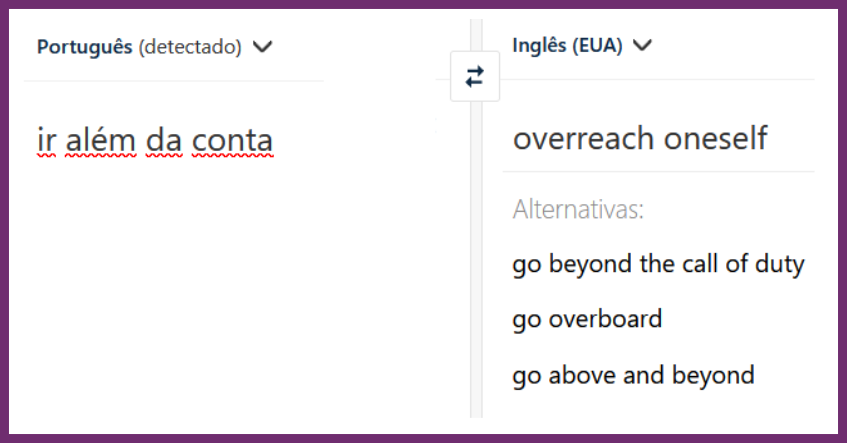Idioms Can Be a Tough Nut to Crack

I know we've said it before, but it's worth repeating: Translating is much more than a technical skill − it's an art.
Every translator needs to have a deep understanding of the languages he or she works with so the end result – the translation in the target language – reflects the original in all its essence.
When a translation closely follows the words as they appear in the source language instead of probing the meaning underneath them, the result in the target language could be embarrassing at best or disastrous at worst. For example, let's consider the following expression in Portuguese:
Ir além da conta
Should your translation of this Portuguese idiom (remember that idioms can be a tough nut to crack) follow the words in the source language?
No, it shouldn't. This is an idiomatic expression and idioms that are culturally loaded can be a tough nut to crack.
When you run them through an electronic translator, there's a good chance you'll wind up with something that leaves you with egg on your face!
Let me show you what I mean. Below are two results of the electronic translation of "ir além da conta". The same translations can be found in various other sites.


Now let's find these expressions in AVRO dx. First, "IR ALÉM DA CONTA".


To cross the line (omq to step over the line | to go over the line | to cross the lines | to cross some lines): Sair da linha | passar da conta | ir além da conta | extrapolar os limites | passar dos limites | ultrapassar os limites | ir longe demais (fazer ou dizer algo que é além do aceitável = to do or say something that is beyond what is acceptable) (some of the comedian's jokes crossed the line because of their graphic sexual content = algumas das piadas do comediante passou dos limites em virtude de seu conteúdo sexual explícito | he crossed the line by taking credit for his co-worker's idea for streamlining the workflow = ele foi longe demais ao tomar para si o crédito da ideia de seu colega de trabalho quanto a agilizar o fluxo de atividades | he had too much to drink last night, went over the line by swearing and annoying the other customers, and was thrown out of the nightclub = ele bebeu demais ontem à noite, foi além da conta e começou a falar palavrões e incomodar os clientes e acabou sendo jogado para fora da boate; she stepped over the line by calling her boss a male chauvinist pig and was fired = ela ultrapassou os limites e foi mandada embora por chamar o chefe dela de machista).
Next, see how AVRO dx defines 'GO OVERBOARD'.

To go overboard: Extremar | exagerar | exceder-se | desmedir-se | ser muito extremista.
'TO GO OVERBOARD' refers to an extreme, exaggerated, over-the-top reaction while 'CROSS THE LINE' means unacceptable behavior (actions and words) that may be seen by others as being offensive.
Now do you understand the difference between a pseudo-translation and a reliable, well-thought-out translation?
A translation you can count on is what you get when you use AVRO dx.
AVRO dx is a comprehensive (English-Portuguese-English) reliable database containing over 250,000 primary entries, thousands of technical terms from all segments, over 3,700 pictures, plus helpful example sentences and explanations.
Watch the video below to learn more about AVRO dx and what it can do to help you and your career!